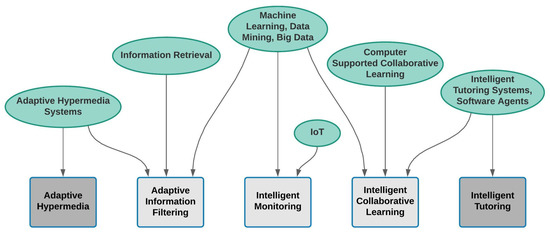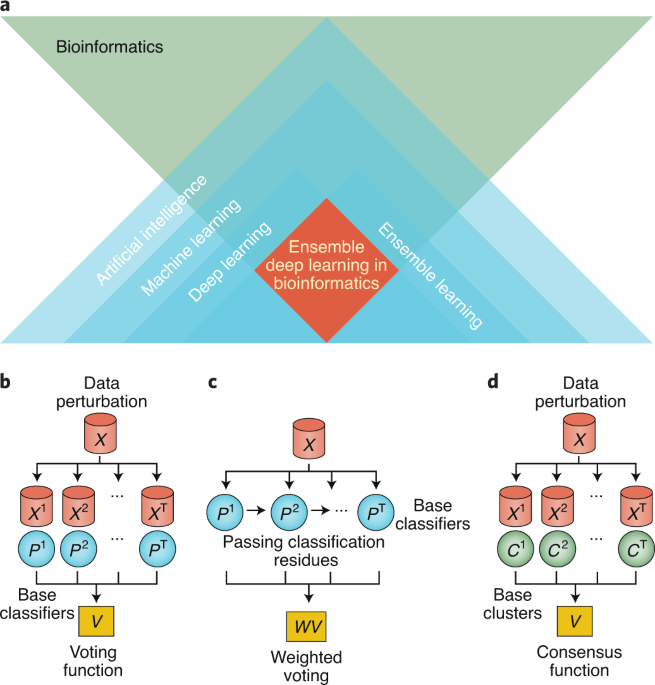The Definitive Guide for Bioinformatics Tutor
The Definitive Guide for Bioinformatics Tutor
Blog Article
All About Bioinformatics Tutor
Table of ContentsOur Bioinformatics Tutor PDFs6 Simple Techniques For Bioinformatics TutorThe Best Strategy To Use For Bioinformatics TutorBioinformatics Tutor for DummiesSee This Report about Bioinformatics Tutor
Of the total individuals included in the training, 80% were pupils from public college organizations, while the remaining 20% came from personal institutions. To get a certificate of participation, trainees were required to attend at least 90% of the total training hours. As a result of this demand, a remarkable 95% of the individuals successfully gotten their certifications, having not just satisfied the minimum attendance criteria yet additionally finished all assigned activities throughout the training.
During the elevation of the COVID-19 pandemic, specifically between June and August 2020, the project group was entrusted with organizing specialized training in bioinformatics. This training was specifically targeted at trainees from the research study group Core for Study in Applied Computer at the Federal University of Pará (UFRA) The adaptation to remote discovering systems because of the pandemic developed a chance to discover brand-new training methods and electronic devices that boosted both reach and efficiency.
This training course was developed to supply an available yet thorough summary of Artificial Knowledge techniques, especially as applied in bioinformatics (Bioinformatics Tutor). This virtual style made it possible for engagement from students throughout Brazil, many of whom might not have had the chance to attend in-person sessions.
The Greatest Guide To Bioinformatics Tutor
A significant feature of this program was its emphasis on hands-on learning. Around 50% of the overall training hours were devoted to sensible activities where students built intelligent designs and applications in a variety of scientific domains, including genetics, molecular biology, and ecological data evaluation. Extensively made use of structures and devices such as Spyder, Google Colab, Jupyter Notebooks, and Orange were integrated into the coursework. These systems enabled trainees to participate in real-time data adjustment, design training, and formula testing.
Sixty of them were connected with numerous greater education institutions in the state of Pará, while the continuing to be twenty came from organizations found in 5 various other Brazilian states. By presenting Artificial Intelligence in a pertinent and practical context, the campaign offered to bridge the gap in between concept and real-world application, offering pupils with a strong structure for future research or employment in the field.
The training campaign formed part of a wider scholastic outreach effort understood as the Bioinformatics when traveling project. This project has, over site web the years, presented lots of students to the world of bioinformatics and computational biology. The occasions held under this umbrella campaign have taken place throughout several regions and years, as summarized in Table 1 (List of occasions, places, years, and total numbers of pupils and instructors)
Numerous of these groups, at first brought with each other by their involvement in training events, have given that gone on to generate independent clinical research in collaboration with neighborhood scholastic establishments. The training not only cultivated scientific reasoning within the context of bioinformatics yet additionally stimulated collaborative connections that expanded beyond the training atmosphere.
The Best Strategy To Use For Bioinformatics Tutor
The very same team, excluding IH and RR, also acted as tutors for the functional training components. Funding for the job was offered through the give 88887.200562/ 2018-00 from CAPES.
The Federal College of Pará's Office of Study (PROPESP/UFPA) also provided economic support, particularly for the production of the final manuscript. The writers declare no industrial or monetary problems of interest that can have affected the helpful site research. All analyses and viewpoints expressed in this write-up are solely those of the writers and do not necessarily show those of their particular institutions, the publisher, editors, or reviewers involved in the publication procedure.

Bioinformatics Tutor Things To Know Before You Buy
From a pedagogical perspective, the mentor technique utilized in the training was deliberately interactive. Courses were performed in a fashion that urged trainee engagement and conversation, surpassing rote memorization to discover just how ideas are created, applied in every day life, and checked in academic setups. The training ideology concentrated on nurturing both solid and having a hard time students, supplying individualized assistance, and building confidence through sustained mentorship and perseverance.

Each team, including around 36 participants, was sustained by 3 coaches-- the majority of whom were postdoctoral scientists with specific experience. These mentors not just aided develop the group projects but additionally facilitated their implementation, ensuring that each study inquiry was both suitably challenging and pertinent. The goal was to offer a naturally practical context that participants can check out via open-ended objectives and access to curated datasets.
For additional insights right into the technique and results of this project-based learning technique, viewers are guided to S1 Text, which includes in-depth summaries of the pedagogical structure, assessment methods, and job themes utilized in the training sessions.
How Bioinformatics Tutor can Save You Time, Stress, and Money.
Of the overall individuals involved in the training, 80% were trainees from public higher education establishments, while the continuing to be 20% came from private establishments. To qualify for a certification of involvement, students were needed to go to at the very least 90% of the overall training hours. Significantly, beyond the pupils who enlisted in the training sessions, 7 seasoned trainers took part in supplying the programs, website link while three devoted research professors coordinated the total training procedure. Approximately 50% of the complete training hours were devoted to useful activities where pupils constructed intelligent versions and applications in a range of clinical domains, consisting of genes, molecular biology, and ecological information analysis. The training not only fostered scientific reasoning within the context of bioinformatics but also sparked collaborative connections that extended beyond the training environment.
Report this page